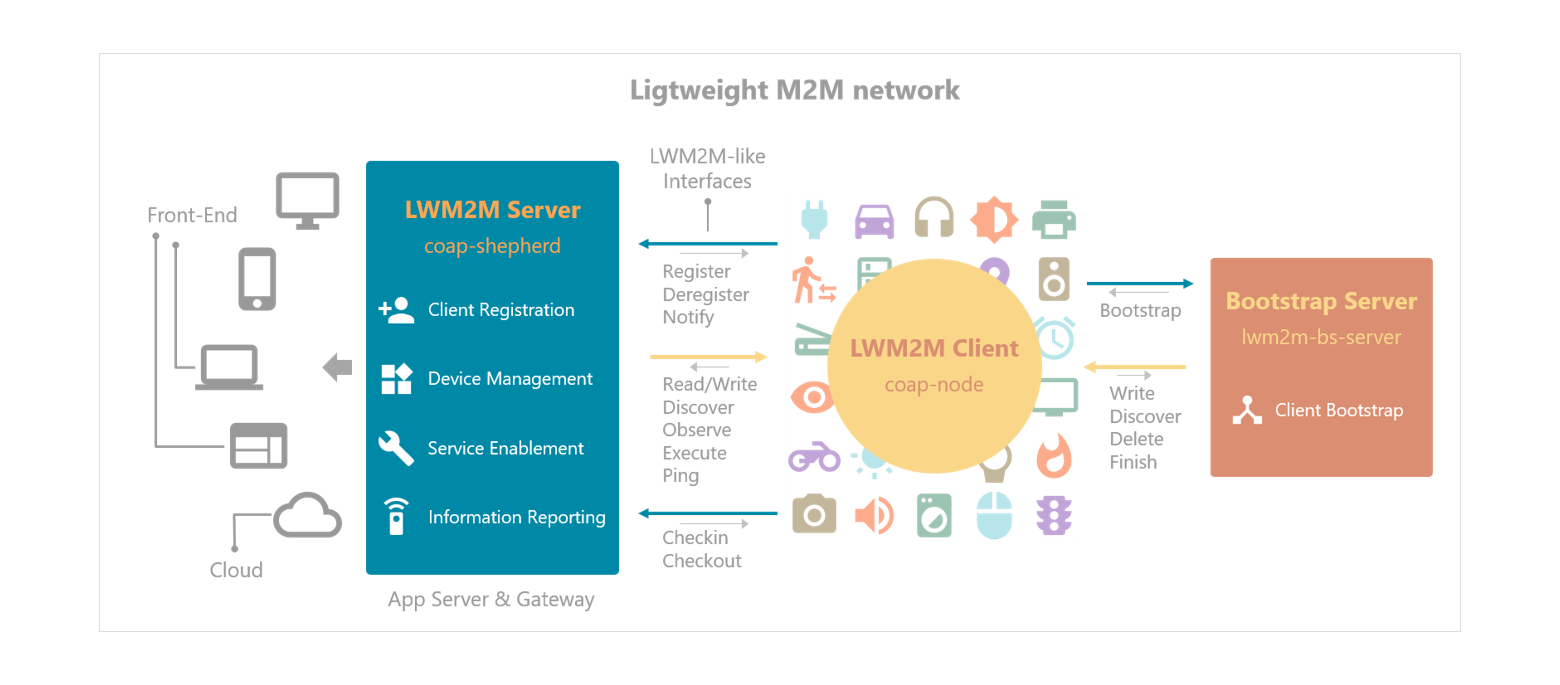
Security News
/Research
Wallet-Draining npm Package Impersonates Nodemailer to Hijack Crypto Transactions
Malicious npm package impersonates Nodemailer and drains wallets by hijacking crypto transactions across multiple blockchains.
Client node of lightweight M2M (LWM2M).
Please visit the Wiki.
OMA Lightweight M2M (LWM2M) is a resource constrained device management protocol relies on CoAP. And CoAP is an application layer protocol that allows devices to communicate with each other RESTfully over the Internet.
coap-shepherd, coap-node and lwm2m-bs-server modules aim to provide a simple way to build and manage a LWM2M machine network.

$ npm install coap-node --save
Client-side example (the following example is how you use coap-node on a machine node):
var SmartObject = require('smartobject');
// initialize Resources that follow IPSO definition
var so = new SmartObject();
// initialize your Resources
// oid = 'temperature', iid = 0
so.init('temperature', 0, {
sensorValue: 21,
units: 'C'
});
// oid = 'lightCtrl', iid = 0
so.init('lightCtrl', 0, {
onOff: false
});
var CoapNode = require('coap-node');
// Instantiate a machine node with a client name and your smart object
var cnode = new CoapNode('my_first_node', so);
cnode.on('registered', function () {
// If the registration procedure completes successfully, 'registered' will be fired
// after registered, start your application
});
// register to a Server with its ip and port
cnode.register('192.168.0.77', 5683, function (err, rsp) {
console.log(rsp); // { status: '2.05' }
});
Server-side example (please go to coap-shepherd document for details):
var cnode = cserver.find('my_first_node');
cnode.read('/temperature/0/sensorValue', function (err, rsp) {
console.log(rsp); // { status: '2.05', data: 21 }
});
cnode.write('/lightCtrl/0/onOff', true, function (err, rsp) {
console.log(rsp); // { status: '2.04' }
});
Licensed under MIT.
FAQs
Client node of lightweight M2M (LWM2M).
We found that coap-node demonstrated a not healthy version release cadence and project activity because the last version was released a year ago. It has 1 open source maintainer collaborating on the project.
Did you know?

Socket for GitHub automatically highlights issues in each pull request and monitors the health of all your open source dependencies. Discover the contents of your packages and block harmful activity before you install or update your dependencies.

Security News
/Research
Malicious npm package impersonates Nodemailer and drains wallets by hijacking crypto transactions across multiple blockchains.

Security News
This episode explores the hard problem of reachability analysis, from static analysis limits to handling dynamic languages and massive dependency trees.

Security News
/Research
Malicious Nx npm versions stole secrets and wallet info using AI CLI tools; Socket’s AI scanner detected the supply chain attack and flagged the malware.